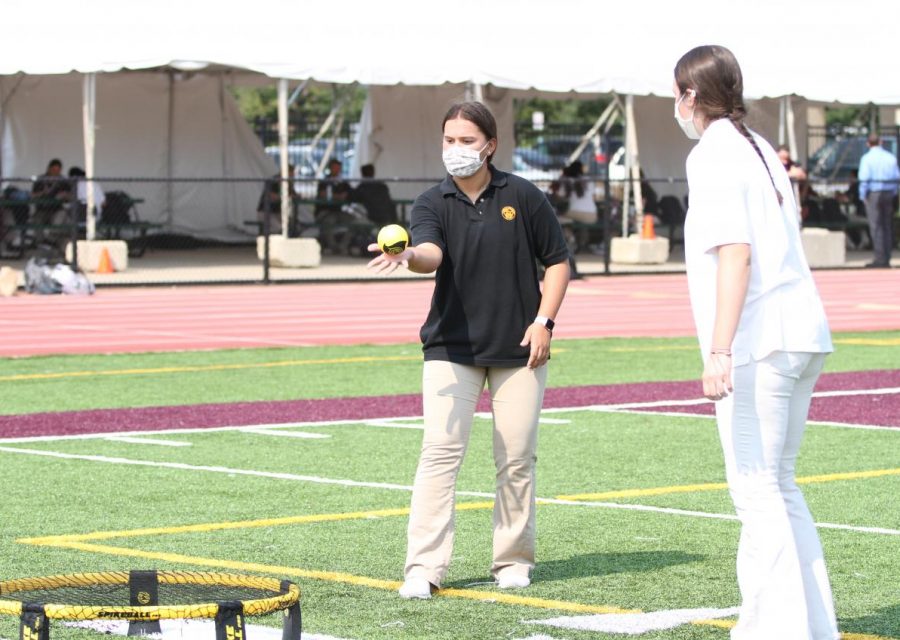Ouch! Oops! Comes to Loyola
As students participate in events like spikeball or just hanging around school, they are encourage to use the “ouch/oops” method. But will it work?
September 28, 2020
After a chaotic and somewhat isolated summer, students are returning to Loyola to follow a new schedule. Along with the schedule, many other ideas and things have been implemented, or are encouraged to be implemented within the school. One of these things is the “Ouch” “Oops!” method.
The “Ouch” “Oops!” method is designed to encourage students to speak up about topics that could possibly offend their classmates. Say a student says something such as, “That’s so gay.” Another student can say “ouch” in order to create conversation or let that other person know that what they said can be taken as offensive. This method is fairly new and was introduced to all the students during their orientation. Within the student body, there are some who see that there is potential within using this, and some who don’t.
Senior Michael Morales said that, “I think that it’s not effective because people find it as a joke. I see some people just using it as a joke.”
Senior Joey Paxson also said, “I’ve seen it in use a couple times at Loyola, though I have personally not used it.” When asked about whether it is useful or not Paxson said, “It depends on the group. Some people will use it and others won’t.”
While having good intentions, this method seems to be less effective than what was expected. During orientation, students were told that Notre Dame Prep was also using the method. However, many think that just because it works there, doesn’t mean that it will work here.
Sophomore Nathan Matanguihan said, “I think it’s an ok attempt to get students to stand up against microaggressions, but it’s hard to use the method and stand up when an entire group is just ok with someone saying something offensive. Even though I’m only a sophomore I haven’t really seen the people higher up themselves hold people accountable for saying toxic stuff.”
Junior Jake Chi noted, “in the real world it really doesn’t work like at all because you’re assuming that 14-18 year olds have the capacity to know right from wrong and when to hold themselves accountable. Yes it works on paper in some circumstances, but in the real world and in Loyola especially it has zero chance being majority positive.”
Recently there has been a normalization of racist and homophobic jokes. Even if they are more normalized, the jokes don’t hurt any less and aren’t any less offensive to people. According to many, this method only seems to work with some groups while others not.
Many people will be with friends making these jokes and many of the friends will not say anything about it. It does not seem to be a lack of understanding and a lack of knowledge on the subject, but more so a lack of care. Both the lack of care and normalization of the jokes will put a strain on the method as people will start to drift away from it.
Trying to continue to use this method isn’t impossible, but will be difficult as a majority of the method relies on the students to speak up. In general, the method seems to be a good starting place, but with the normalization of offensive jokes and the lack of speaking up, it won’t be as useful.

